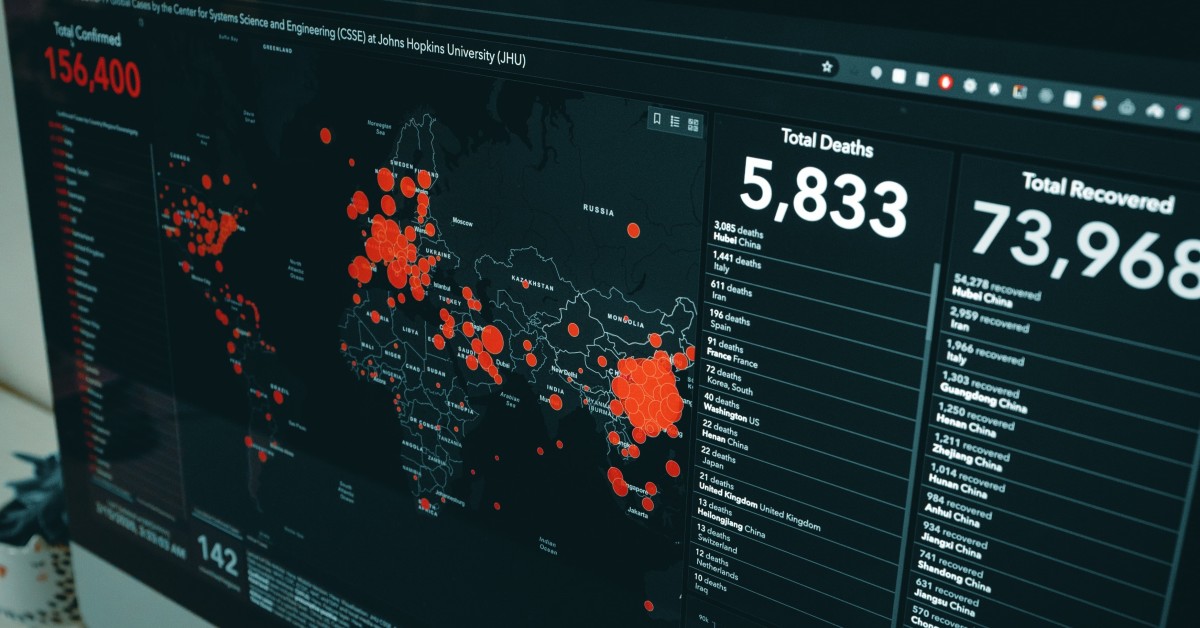
Where Do Epidemiologists Work?
Epidemiologists work in many settings, including hospitals, universities, and federal, [...]

It’s no secret; the American healthcare system has some significant problems. Many citizens do not have access to optimal health insurance, and those who do sometimes pay through the nose (or another ailing body part) for it. Nearly everyone agrees that things need to improve in the United States, but there is no clear-cut solution. That’s where health policy analysts enter the picture.
As a policy analyst, you will evaluate old, outdated programs and create new, more impactful ones to take their place. Improving healthcare policy is a difficult task, but one that can pay over $100,000 if you have the right education, experience, and opportunities.
In this article discussing how much do health policy analysts make, we will cover:
It’s not hard to figure out the basic responsibilities of a health policy analyst: to analyze health policies. As a health policy analyst, you’ll evaluate current policies to see which ones work and which ones don’t. Then, you either refine or eliminate outdated methods in favor of better ones.
These professionals generally work in teams—an aspect of the job that requires strong interpersonal skills—to collect and process data. The ‘data’ part means they also need well-honed technical and analytical skills. Successful health policy analysts typically have:
Policy analysts help make unenviable decisions involving healthcare and budgets, which is why being knowledgeable and thorough is essential. You may be required to cut a program that impacts the health and well-being of hundreds of people in favor of a less-expensive one that helps thousands of others. Being confident in your projection systems and analytics is a necessity, and being able to communicate your findings effectively to government officials and lobbyists through the use of charts and graphs is a huge bonus.
Policy analysts can work for:
The nature of your work will change depending on your employer. The think tank Alliance for Health Policy, for example, describes itself as a “nonpartisan, not-for-profit organization dedicated to helping policymakers and the public better understand healthcare policy, the root of the nation’s health care issues, and the trade-offs posed by various proposals for change.” If you wind up working there, you’ll probably focus more on meeting with lawmakers and presenting data than on writing policy for specific clients.
Some other well-known healthcare policy think tanks include:
Analysts who work at health insurance companies, on the other hand, might focus more on how existing healthcare policies impact their customers and finances. For example, health policy analyst Kris Haltmayer, vice president of legislative and regulatory policy for insurance giant Blue Cross Blue Shield Association (BCBSA), “oversees regulatory and policy development for BCBSA working on a broad range of issues important to Blue Cross and Blue Shield companies.” His job duties include:
In all instances, health policy analysts look to improve healthcare costs and outcomes. The solutions they propose, however, vary depending on the priorities of their employers.
According to PayScale, the average health policy analyst earns $62,438 per year. Those in the 90th percentile earn around $85,000, while those in the bottom 10 percent earn roughly $45,000. These figures place health policy analysts roughly on par with other financial analysts; an entry-level analyst earns $53,883 per year, according to PayScale.
PayScale’s numbers provide a good starting point for figuring out how much you can make, but they do not give the full picture. Your salary as a policy analyst will greatly depend on where you work. For instance, analysts employed by community-based nonprofits earn in the $40,000 to $50,000 range. The average salary for think tank employees is $61,000, but senior analysts can earn as much as $170,000. The best-paid think tank employees (executives) can potentially earn seven figures, although it takes years of work and even some political maneuvering to reach that pay level.
Being a manager and program analyst for the federal government is one of the best policy jobs available. The starting salary for management analysts is $26,915, but the average salary is a whopping $106,121. Federal management analysts get paid on the General Schedule (GS) payscale; the highest level is GS-15, at which you’ll earn at least $140,000. That number can increase even more as a result of the Locality Pay Adjustment.
Policy analysts might work in academia, which has a varying pay scale. Tenured university professors who teach healthcare policy can command salaries over $100,000, while an adjunct earns less than half of that. If you start writing articles for newspapers or independent journals as an expert (say, one on the latest plague to sweep the world), you will be able to negotiate a rate per article or even per word you write. What you can earn as a writer depends on your level of expertise and how frequently you write.
So yes, health policy analysts have an average salary of around $60,000, but that number is heavily dependent on where you work and how experienced you are. It could be more, but it also could be much less.
Completing a bachelor’s degree can be enough to start your career in policy analysis. Analysts typically earn a diploma in health science, public affairs, or political science, but a degree in social work or accounting also can get you started in this field. Undergraduate education also offers an excellent opportunity to gain work experience by completing an internship, which some entry-level analytics jobs require.
The most significant benefit of earning a bachelor’s degree is that it prepares you for graduate school, which many health policy analyst employers require, according to the Bureau of Labor Statistics. Graduate degrees usually take two years of full-time study to complete. There are a number of online and part-time options available.
Top graduate degree choices for health policy analysts include:
All of these degrees offer policy analysts the opportunity to improve their skill set and find a higher-paying job. You might be tempted to earn a Master of Public Administration, but the MPP is better for health policy analysts. The MPA is a better degree for managers than for analysts.
The Master of Science in Health Policy and Management is broadly focused on public health and political policy. Students learn about economics, biostatistics, and epidemiology in addition to healthcare. If you decide to earn an MPH, your course load will include a heavy dose of healthcare planning courses. MPH-holders qualify for careers inpublic health planning and disaster management in addition to healthcare policy analytics. With its heavier focus on data and statistics, an MPP might be a better choice for healthcare policy analysts, though it also includes classes in urban planning, public management, and microeconomics.
There is considerable overlap between the MPH and MPP—in both courses and career outcomes. Some schools, like University of Michigan – Ann Arbor and University of Virginia (Main Campus), offer joint programs for students who just can’t pick between the two.
Now that you know which master’s degrees best fit this career, where are the best places to get them? Choosing the right school is just as important as choosing the right degree path. Here are a few of the top colleges and universities for each graduate program, according to US News and World Report.
Leading health policy and management programs programs include:
Top public health programs include:
Finally, well-regarded schools for public policy include:
Absolutely. Healthcare policy analysts with graduate degrees are likely to earn more money than those without, mostly because graduate education is usually a requirement for the best jobs. You are unlikely to reach the highest level of government policy analyst with just a bachelor’s degree.
The BLS reports that workers with an advanced degree earn nearly $300 more per week than those with just a bachelor’s diploma—across all fields. The average salary for healthcare policy analysts might seem humble, especially compared to certain positions in tech and finance, including those working in pure data analytics or as financial analysts. But by building the right skill set and getting the best education possible, you can set yourself up to earn six figures while also working for the benefit of society at large.
Questions or feedback? Email editor@noodle.com

Epidemiologists work in many settings, including hospitals, universities, and federal, [...]

All health data analysts sift and sort data to cull [...]

Statisticians work across employment sectors that include government, business, healthcare, [...]

A master's in information management provides a grounding in database [...]
Categorized as: Health Informatics & Sciences, Nursing & Healthcare